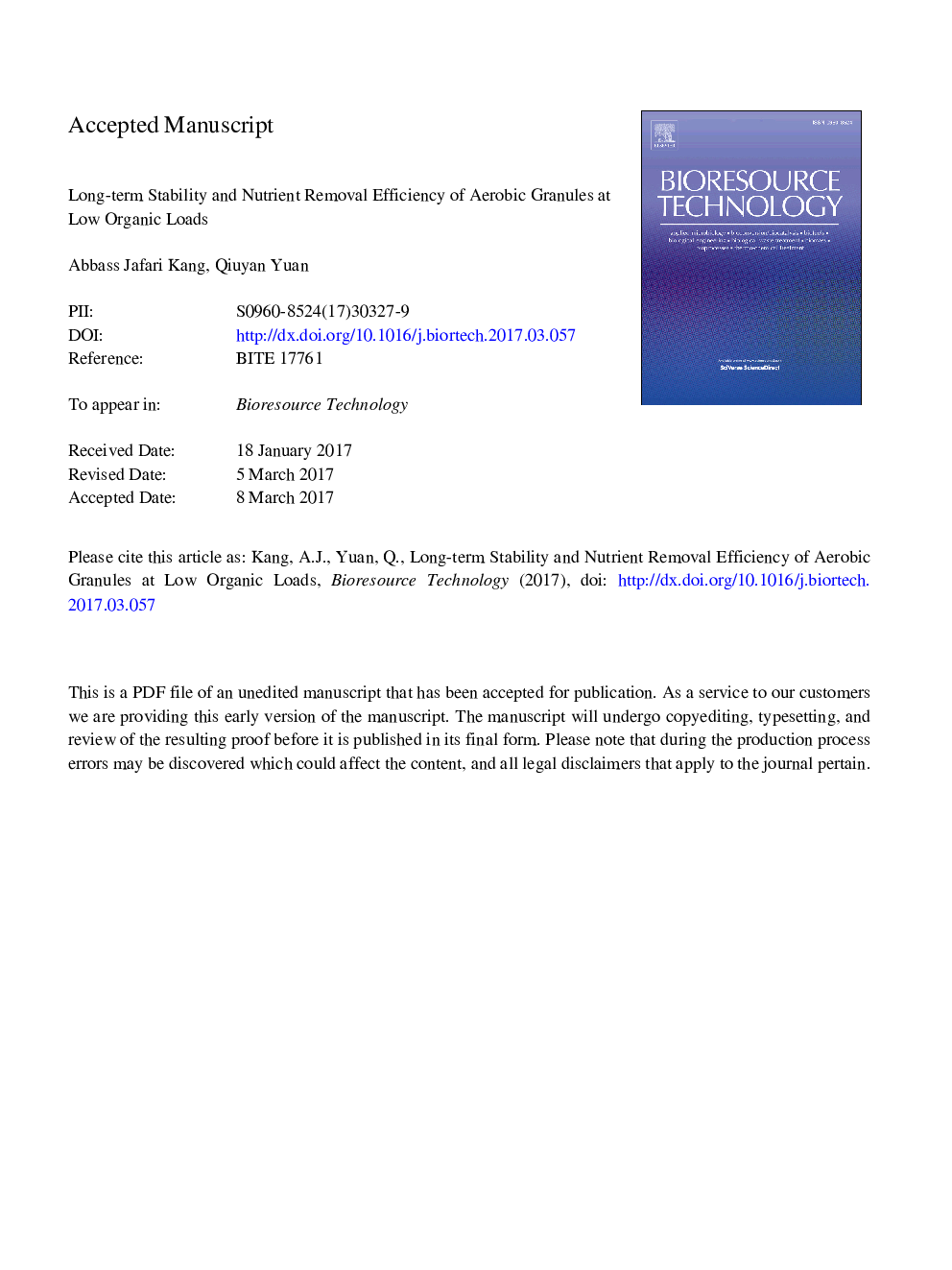| Article ID | Journal | Published Year | Pages | File Type |
|---|---|---|---|---|
| 4997311 | Bioresource Technology | 2017 | 27 Pages |
Abstract
The feasibility of application of aerobic granular sludge cultivated with high organic loads for biological nutrient removal (BNR) from low-strength wastewater was studied. Granules obtained with high-strength (CODÂ =Â 1400Â mg/L) wastewater were fed with medium (CODÂ =Â 700Â mg/L) and then low-strength (CODÂ =Â 400Â mg/L) wastewater. The granules rapidly acclimated to the medium-strength wastewater. However, feeding with low-strength wastewater reduced the F/M ratio from 0.4 to 0.2Â gCOD/gVSSÂ d and granules disintegration occurred. Re-granulation was obtained after poor settling biomass was washed out and the F/M ratio reached 0.4Â gCOD/gVSSÂ d. Disintegration of granules coincided with the decrease in extracellular polymeric substances (EPS) content and protein-to-carbohydrate ratio and re-granulation was assisted with the increase in EPS and protein-to-carbohydrate ratio. The results indicated that cultivation of aerobic granules with high organic loads and its implication for BNR treatment of low-strength wastewater while balancing the F/M ratio can be an alternative to reduce start-up period.
Related Topics
Physical Sciences and Engineering
Chemical Engineering
Process Chemistry and Technology
Authors
Abbass Jafari Kang, Qiuyan Yuan,
